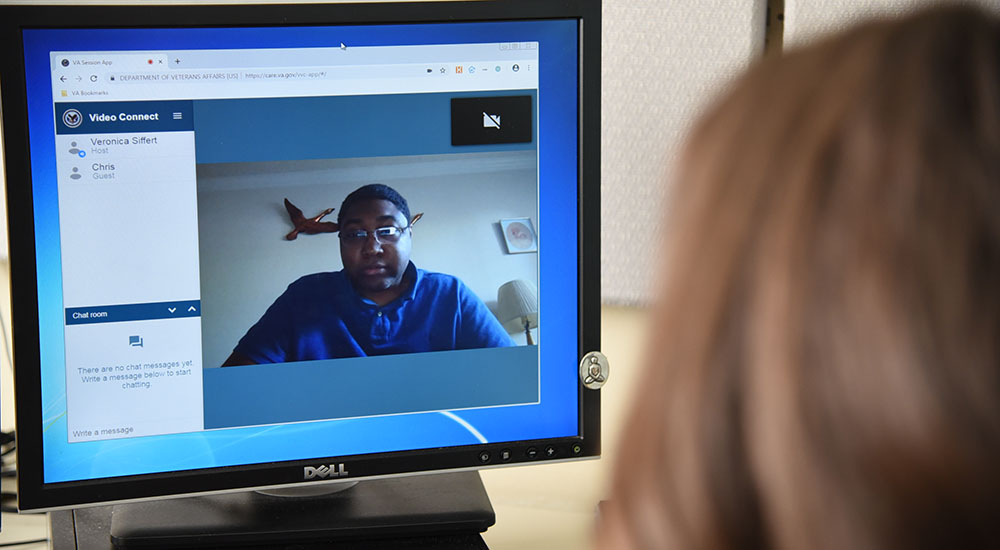Chatting with Donna Zulman, MD, about her recent research on telehealth at the U.S. Department of Veterans Affairs, I was struck by how many potential obstacles veterans can face when they need care.
First, there are geographic barriers: About a third of the 9 million veterans in the VA health system live in rural or island areas -- far enough to make time, transportation and cost all potential hurdles for getting to in-person appointments.
Then there are logistical barriers. Some vets have a hard time getting away from work or finding a caregiver for a child or loved one. And sometimes there are health-related barriers: veterans who fear a stigma if they publicly seek mental health care or who feel uncomfortable in the VA setting because of trauma in the service.
Sensitive to these concerns, the VA has proactively sought telehealth options, Zulman told me. A recent pilot project put 5,000 tablets in veterans' hands to encourage clinical visits via video. Zulman, an assistant professor of medicine, is a lead researcher on two recently-published studies evaluating this initiative.
"A lot of veterans have difficulty accessing VA services in person, and the tablet technology provided one opportunity to get those patients care," she told me. "Operations leadership at the VA wanted to really understand who was getting the tablets, how they were being used, and whether they were reaching the patients who needed them."
The project zeroed in on patients with the most need: vets with active clinical issues but a significant barrier to care who didn't have a device or the necessary data plan for a video visit. About half of the participants lived in a rural area. One of the studies examined how both patients and providers took to using the tablets over the course of 16 months in 2016-17.
The results were promising, Zulman said: about 4 in 5 of the veterans used their tablet at least once. Those who were older than 45, married and with fewer chronic conditions were more likely to make use of the tablet. The video visits variously covered mental health care, spinal cord injury care, home-based primary care, and therapy and rehabilitation, among other services.
Zulman said veterans told her and her colleagues that the tablets made care more convenient, reduced driving time and helped them avoid bad weather. One patient said he participated in weekly appointments in his car during lunch breaks from his construction job. Another said that the tablet allowed him to do cardiac rehabilitation three times a week, avoiding costly travel.
It can be helpful for clinicians and patients to see each other for counseling and other conversation-based care, Zulman told me. In addition to building trust and a connection, "there's a lot we can get from visual cues that we can't necessarily get over the phone," she said.
Video visits can be particularly useful for mental health care -- especially when a clinician recommends contact once a week or more frequently, Zulman said.
Seventy-six percent of the veterans participating in the pilot had a diagnosed mental health condition. Zulman is the senior author on a study -- led by Josephine Jacobs, PhD, a researcher at the VA -- that evaluated their experience. They found that, compared to a control group, tablet recipients had more psychotherapy visits and more medication management visits in the six months after getting the devices. Patients with the tablets also were more likely to receive at least three psychotherapy visits in a six-week period, and less likely to miss scheduled appointments.
"We know that access and continuity are critical to improving mental health outcomes over time," Zulman said. "Our findings suggest that these tablets may play an important role in getting veterans the care that they need."
Encouraged by the promising results, the VA intends to distribute 75,000 tablets -- more recent versions of the devices -- for patient use in the next three years, she said. A recent three-year, $100 million proposal from the Federal Communications Commission further supports telehealth, providing an 85% discount on connectivity for services that connect low-income patients and veterans directly to their doctors.
Meanwhile, Zulman and her colleagues will continue investigating how best to use the technology to more efficiently reach more veterans.
"We're hoping to see these numbers go up with the new technology," she said. "There is building knowledge about the tech support that patients need, and a growing number of clinicians are offering virtual care to veterans who have difficulty accessing traditional services."
Photo of Air Force Veteran Christopher Banks receiving tele-mental health services at home by Todd Goodman, public affairs specialist, Houston VA Medical Center




